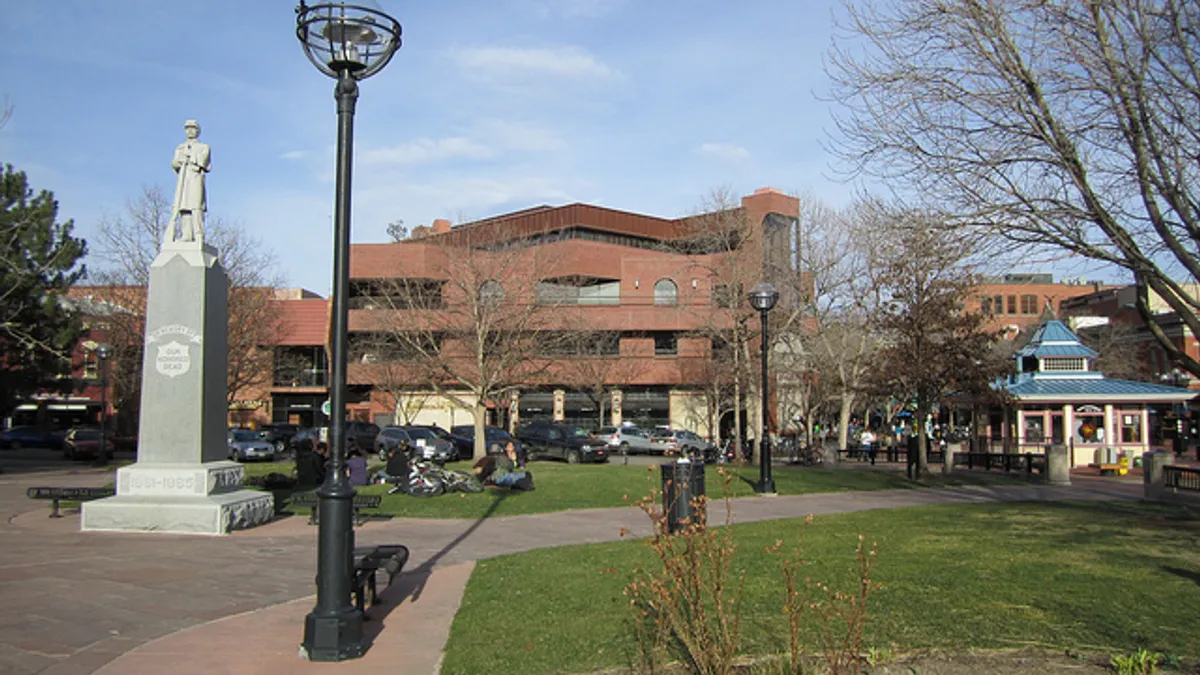Dive Brief:
- The Colorado Public Utilities Commission issued an order last week approving a part of the city of Boulder's proposal to establish a municipal utility, but denied plans on how the separation from Xcel Energy would move forward.
- Despite the CPUC's move, Boulder officials issued a statement saying the decision "creates a path forward for the city to proceed with municipalization" and that they plan to analyze the timing and financial implications over the next few weeks.
- The CPUC approved a list of assets Boulder had wanted to transfer from the utility, but it set out several conditions and excluded a half dozen substations from the list.
Dive Insight:
The Colorado PUC's order last week included few surprises, as it reflected the tone of deliberations in August and formalized those deliberations. While Boulder officials said they consider the decision a positive outcome, the Daily Camera reports the way forward for the city is narrowing and could get more expensive.
Four years ago, voters approved spending up to $214 million to form a municipal utility, but that may not be enough, depending on how Boulder accesses disputed assets and goes forward with the separation. A phased approach was rejected by regulators.
The city, in a statement, said it "will conduct a thorough analysis of the financial and timing implications of the ruling over the next few weeks" but added that "in its initial evaluation, it does not appear that the order significantly alters either the timeline or the overall cost of municipalization. This is a positive outcome for the city."
Boulder noted that the order states once the city has provided the CPUC with certain information, the city may proceed to acquire the assets located outside substations. The order directed Xcel Energy to work with the city over the next 90 days to finalize certain agreements.
Boulder officials said the order also "presents the city with challenges that will need to be worked through."
Regarding denial of substation transfers, regulators said the city and Xcel Energy must work out agreements to co-locate, build new substations, or resolve the issue through the federal Open Access Transmission Tariff process.
Boulder's first application, filed in 2015, proposed transferring assets from Xcel to allow the city to serve customers outside the incorporated lines. Regulators blocked that plan, leading the city to consider alternatives now on the table.















